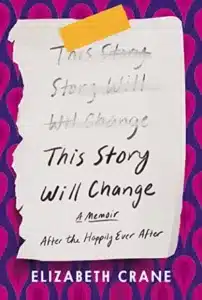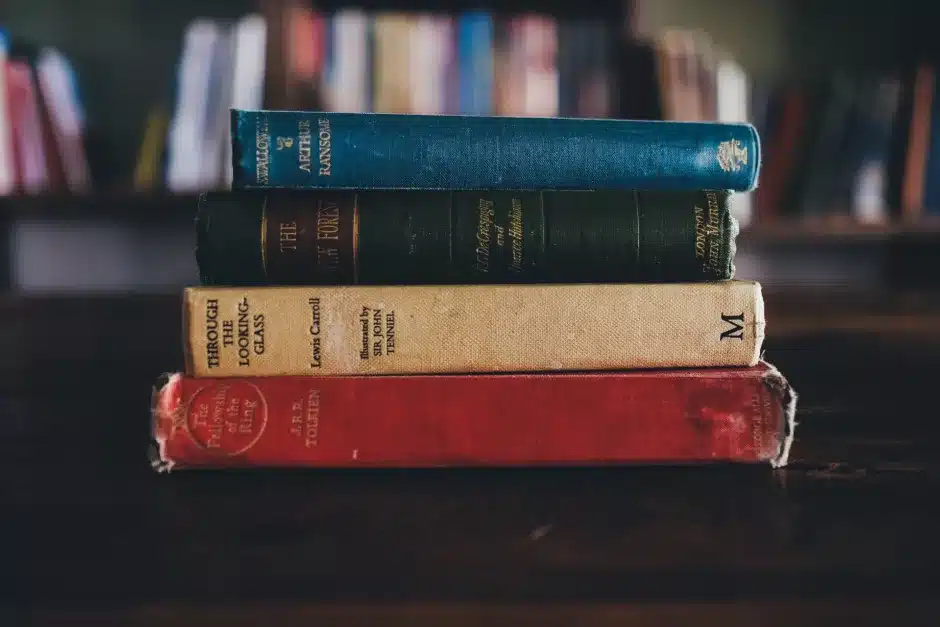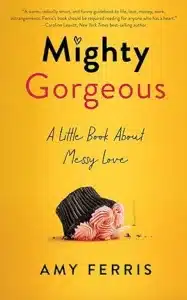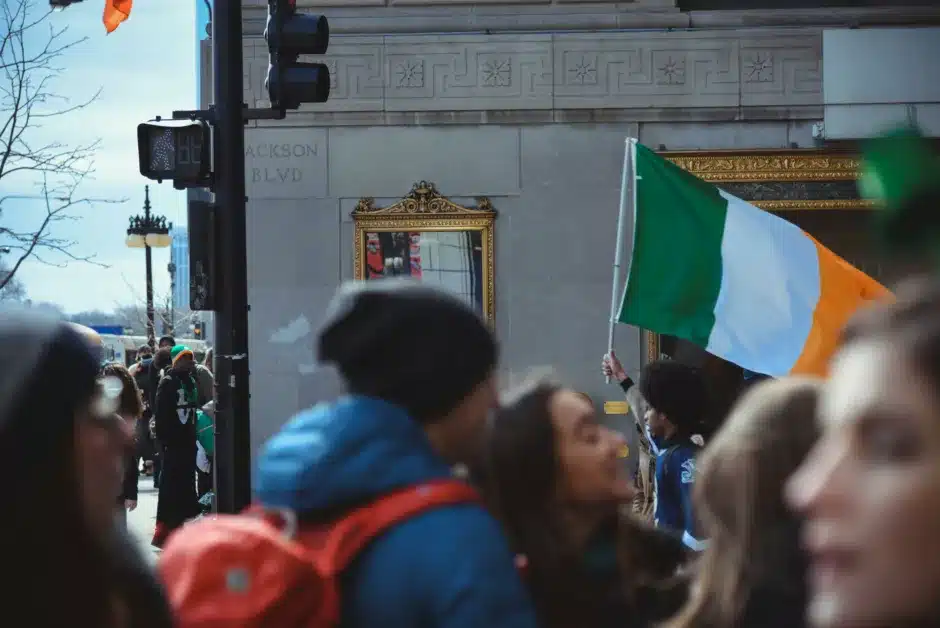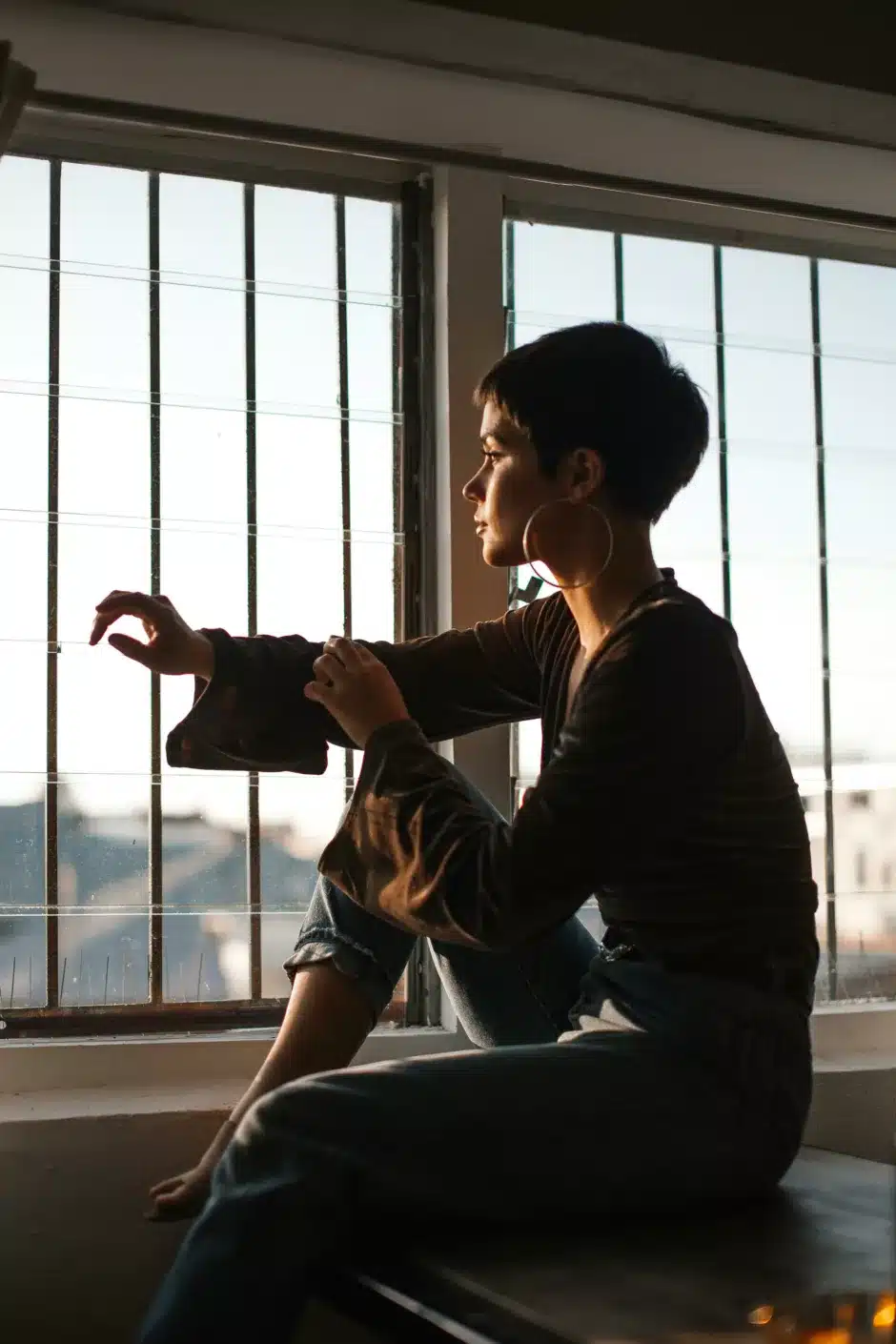My boyfriend says I don’t listen. He means to him, I suppose. But that’s not true, like so much that guys say. Maybe he feels I don’t listen because I don’t say what he expects. We fight about listening. I don’t want to be my mother. She really doesn’t listen. I can usually parrot back anything I’m told. My mother can’t. In an honest mood, she’ll even admit she doesn’t listen. No doubt she could tell you why. For some people, it always goes back to their childhood, though she’d never blame her father. I’ve told her I can’t make it home weekend after weekend, but she asks if I’m coming every time I talk to her. I keep explaining my summer plans, and she forgets them. Maybe she thinks they’ll change.
I never think anything will change, especially people. This drives my boyfriend crazy. Because he wants me to stop interrupting him, and if it’s true people don’t change, then I guess he worries that he’ll never finish a sentence, though it’s more like a paragraph that I’m likely to break in on. Because I’m listening, or because I can’t hear. He doesn’t always hold the telephone receiver to his mouth, so I get mumbles. I interrupt what I can’t hear. My phone isn’t great either. Something wrong with the volume control. He says I yell into the phone when I ask him to repeat what he says. I hate phones.
It’s not enough to consider putting one’s ear to a plastic container that’s touched who knows how many unclean, unwashed heads, never mind the mouthpiece into which words emerge from sneezes and coughing fits. Or that sound. I really hate the sound, just when one is getting into a good book, stirring something on the stove, leaning into a kiss, the phone rings.
In the United States, you can solve the problem. Default to voice mail. Hard to imagine where I live now. I don’t even have my own line, never mind a way to screen calls. Just a loud buzzer telling me when it’s for me. My boyfriend would say I deserve what I get. What do I expect after giving my number to everyone I meet. No one lets me provide the tea or coffee, so the least I can do is hand over a card with my number, a peace offering, an American-Syrian alliance, a souvenir of possibility with my Ashkenazi name in English and Arabic.
I never know who might call or when. Back home in New York, I can guess when not to answer the phone to avoid particular people who always seem to call at particular times. But no one is that consistent here, not the foreigners or the natives. You make a call when you can get a phone. Not everyone has one. People go to phone booths, where they stand in line. They need change, but change is hard to come by. There’s a lot of rounding off. A plane ticket to Damascus from Aleppo at 602 pounds, $12.04, becomes 600 or 605, depending on what you have—or don’t have—by way of change. There are no phones on the planes, buses or trains, which is generally where I meet people.
I met a boy on the train from Aleppo to Latakia. I gave him my card. He gave me his. It had a picture of a hotel overlooking water. His parents own a hotel. I stayed there the next time I visited. Don’t ask. The less said, the better. I listened to his uncle tell me what I was to say when I got back to America, “the hotel is good.” One Sunday in April, months after I met him in late October, this boy called to wish me a Happy Easter. I didn’t know it was Easter. They celebrate two Easters here, Catholic and Orthodox. I don’t celebrate either, unless someone gives me a chocolate egg, which my boyfriend usually does. I remembered what this boy told me during our conversation in October. He explained the Israeli flag, the color, blue. He said it meant they wanted all the land between the Nile and the Euphrates. I didn’t know that. He’s young, a first- year university student in economics. He only called once, and that was sweet really.
But there are others I just don’t know what to do about. There’s the guy I met by accident in a colleague’s office. He said he was a poet. He spoke English in flowery metaphors. I wasn’t sure I heard right, so I said, “what’d you say” and gave him my card.
He calls all the time. He can even get my landlady to take messages. Usually she’ll only take messages for my mother. When I call him back, he always asks the same question. “Will I visit the camps?” Only once, did I ask, “what camps”? The Palestinian refuge camps.
Did he read my card I wonder. I have a perverse curiosity I quash. I can’t go without my husband I say. He persists. Everyday there’s another message. When I can think of no excuse not to, I return the call. It’s another party line, and my bad Arabic gives me an excuse. I understand what is being said and pretend not to. Hold on, the voice says. I hang up.
Omar calls back. Again and again. I finally give in. I agree to go for coffee after work, though I don’t drink the strong, thick Turkish brew or the bitter dark local cups, and the place we go doesn’t have loose Arabic tea, only Lipton teabags. We meet at school, get on a micro-bus, and he chatters freely in English. As we near the Park, on the other side of which is the café he has chosen, he tells me he is a PLO operative, VIP, former translator for Arafat, weapons expert. He’s been everywhere. Sudan, Algeria, Canadian wings, American wings, European wings. Wings. Dismembered birds, I think. All this in a crowded little micro-bus of strangers I hope don’t speak any English.
I look out the window. I can’t see any birds from the high window. I nod my head. The Syrian government wouldn’t be any more pleased than I am. Refugees make them nervous. Refugees talking to foreigners make them nervous. Palestinian refugees make them very nervous. The Security police would be confused. They’ve read my business card. The government does not like to be confused.
I ask for flower tea, zurat. Omar doesn’t understand my Arabic, but the waiter does. As the waiter goes to get the coffee and tea, Omar gives me what looks like a child’s notebook with a bright pink and yellow cover. The paper is perfumed. When I open the thin cardboard cover, I see a carefully inscribed poem, each line inked with a flourish. Rhymes sympathizing with a stranger.
The last time we talked on the phone, I had a cold. That was my excuse for cutting short the conversation, for staying home. But it was true. I really was sick. The poem is disconcerting. He is wishing me good health. He is lavish with praise. Were he one of my students, I would praise the attempt, smile at the innocent flattery. But he is a friend of a colleague, a stranger. I don’t know what to say. It is no better than the average undergraduate romantic doggerel. I know I’m supposed to like it, to be impressed. I can’t say anything, so I ask him what he wants me to say. He asks about the English, if it is correct. I exhale and note that some phrase is impossible in English. The whole thing is impossible, but I don’t say that.
He closes the notebook, telling me he will recopy the poem, correct the English and present me with the gift of his heart, these words. I thank him, reminding him that perhaps my husband might misunderstand. He will explain to my husband, he says. He would not do anything to hurt me.
There is something else, he says, something confidential he must tell me. I look around the restaurant. It’s half empty, darkening with the short winter day, though we are sitting by a window on the west side. I don’t know what he could say for my ears only, what secret that hasn’t been rhymed in the little notebook.
I don’t know how to discourage him. I don’t know what it is I should fear, but I feel a chill at the base of my back. Perhaps the electricity has been cut. The lights have not yet been turned on. Headlights from the passing cars provide all the light there is. I realize I don’t want to listen, but I don’t really know how not to, despite what my boyfriend says.
Omar says he was a prisoner, in Lebanon. The phalangists had him. I try to remember which group the Phalangists are. They’re not Jewish, that much I know.
In his clipped English, he describes being beaten on a “wind carpet.” The rack. Nails poked in his ears. Electric shocks all over his body. He repeats that phrase a lot, “all over my body,” as if it’s a euphemism for specificity, something that can’t be said to a woman. There’s the cell. 80 centimeters by 80 centimeters for six months. Smaller than inches. The walls wet with mildew, and what he doesn’t say I don’t want to imagine. Rats creep under the door, nibble his broken toes, ignore his flailing arms shooing them away. He says something about being cut on his neck. I find myself staring at his neck, looking for scars. He’s left for dead.
He’s found. Palestinians put him in a coffin and stick him in a refrigerator for six days. People are told there has been another martyr for the cause. When they take him from the cold, he bangs on the pine boards. He’s a ghost.
The ghost is caught by the Syrian government, interrogated, tortured. Beaten again. He doesn’t say how. He doesn’t say anything about rats. They want to know who he is. He wants to know where he is. They say Tel Aviv. He says nothing. They say Damascus. He says he has a brother in the camp there. They leave him on a table, smashed, wounds all over his body. His brother appears and calls a doctor who examines the body. The doctor says I can’t treat a political prisoner. The brother puts an AK47 to the doctor’s head. The doctor bandages him. The PLO get him to a hospital.
He says he was a prisoner in Israel, too. But he doesn’t tell me about this experience. I wonder why. He tells me he lost his mind. He kicked the shoulders and back and head of the PLO taxi driver taking him to a hospital. The driver ran over a baby. The baby died. After his wounds heal, he returns to the camp by taxi, with a student he is teaching English. It was midnight. The car crashed. The student died.
At forty, he is twenty again. Over a cup of coffee and a love poem. He wants me to say something. I say I have to go home. I don’t know what else to say. I don’t say I understand Coleridge’s poem better. I never thought about the wedding guest who listens to the aging mariner talk. The albatross. The ghosts.
Omar walks me to a bus stop. When he sees my bus nearing the curb where we are standing, he says he’ll call, that he still wants to take me to the camps, to meet his mother, his child. As I board the white van, pay my six lira, Omar waves. The micro-bus darts into traffic, and I look straight ahead. When I get back to my apartment, the phone rings. I ignore it. As the buzzer sounds, I step into the shower and let the water run. I don’t want to listen to anybody.
Sandy Feinstein lived and worked in Syria while on a Fulbright Award (1998-1999). Creative non-fiction reflecting on her experiences there appears in the Michigan Quarterly Review and Orange Blossom Review. Her chapbook, Swimming to Syria, was published by Penumbra Press in 2021.
***
Wondering what to read next?
This is not your typical divorce memoir.
Elizabeth Crane’s marriage is ending after fifteen years. While the marriage wasn’t perfect, her husband’s announcement that it is over leaves her reeling, and this gem of a book is the result. Written with fierce grace, her book tells the story of the marriage, the beginning and the end, and gives the reader a glimpse into what comes next for Crane.
“Reading about another person’s pain should not be this enjoyable, but Crane’s writing, full of wit and charm, makes it so.”
—Kirkus (starred review)
***


